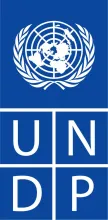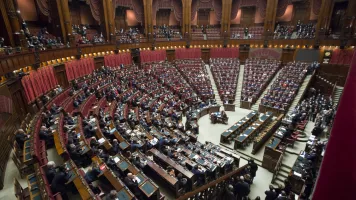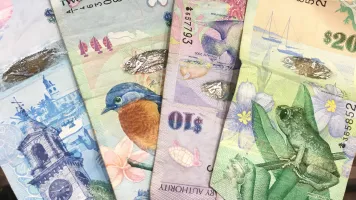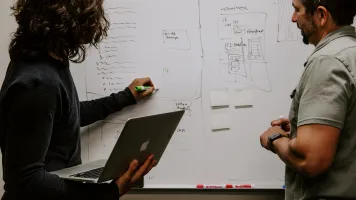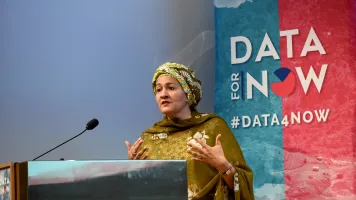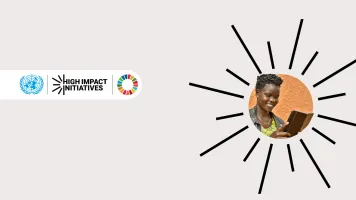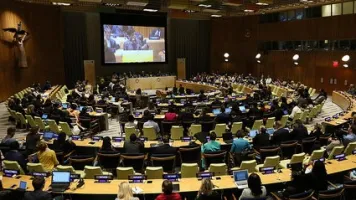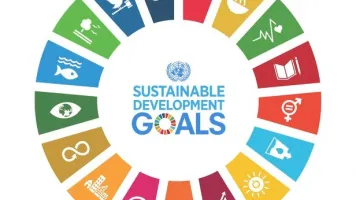The United Nations Development Programme (UNDP) works in about 170 countries and territories, helping to achieve the eradication of poverty and the reduction of inequalities and exclusion. We help countries to develop policies, leadership skills, partnering abilities, institutional capabilities, and build resilience in order to sustain development results.
This is a critical time for the world. At UNDP, we see this period as a huge opportunity to advance the global sustainable development agenda. In September 2015, world leaders adopted the 2030 Agenda for Sustainable Development to end poverty, protect the planet, and ensure that all people enjoy peace and prosperity. UNDP is working to strengthen new frameworks for development, disaster risk reduction, and climate change. We support countries' efforts to achieve the Sustainable Development Goals, or Global Goals, which will guide global development priorities through 2030.
UNDP focuses on helping countries build and share solutions in three main areas:
In all our activities, we encourage the protection of human rights and the empowerment of women, minorities and the poorest and most vulnerable.
The annual Human Development Report, commissioned by UNDP, focuses the global debate on key development issues, providing new measurement tools, innovative analysis, and often controversial policy proposals. The global Report's analytical framework and inclusive approach carry over into regional, national and local Human Development Reports, also supported by UNDP.
UNDP and the UN development system
UNDP remains committed to working even more closely with partners across the UN system. The UNDP Administrator is the Vice-Chair of the UN Development Group (UNDG), which unites the funds, programmes, specialized agencies, departments and offices of the UN system that play a role in development. Created by former UN Secretary-General Kofi Annan and endorsed by the General Assembly, the UNDG is the main UNDS internal coordination mechanism at the global level. It is instrumental in enabling action on the ground and ensuring that United Nations Country Teams (UNCTs) have the support, guidance and impartial oversight required as they assist governments to deliver on the 2030 Agenda. As Vice-Chair, the UNDP Administrator is responsible for the coordination of UNDG operations, including its working groups, as well as day to day management of the Resident Coordinator system.
At the country level, this interagency structure is embedded in the Resident Coordinator System (RCS), which encompasses all organizations of the United Nations system with operational activities for development. The RCS is managed by UNDP on behalf of the entire system. The Resident Coordinator function is carried by the UNDP Resident Representative. As the designated representative of the Secretary-General, the Resident Coordinator is the leader of the UN Country Team (UNCT) and plays a central role in coordinating the UN’s development operations and ensuring alignment with national priorities. UNDP provides the lion’s share of the resources needed to maintain the RC system in over 130 countries. The remainder of the RCS funding comes from a cost-sharing arrangement between all participating agencies.
UNDP also administers the UN Capital Development Fund, which helps developing countries grow their economies by supplementing existing sources of capital assistance by means of grants and loans; and UN Volunteers, which fields over 6,000 volunteers from 160 countries in support of peace and development through volunteerism worldwide.
Priorities as a partner of the Global Partnership for Sustainable Development Data
An ecosystem approach is essential in ensuring that all data stakeholders, particularly the disenfranchised and marginalized, get their voices meaningfully heard and equally and equitably enjoy the benefits of the data revolution.
UNDP will map the data ecosystem in eight countries, to assess the opportunities and constraints of a full engagement of all stakeholders in policy-making processes related to the data revolution for sustainable development. The data ecosystem mapping project will provide an understanding of key priorities and areas of focus to a data strategy, as a cross-cutting component in support of the UNDG MAPS strategy for implementing the 2030 Agenda.
